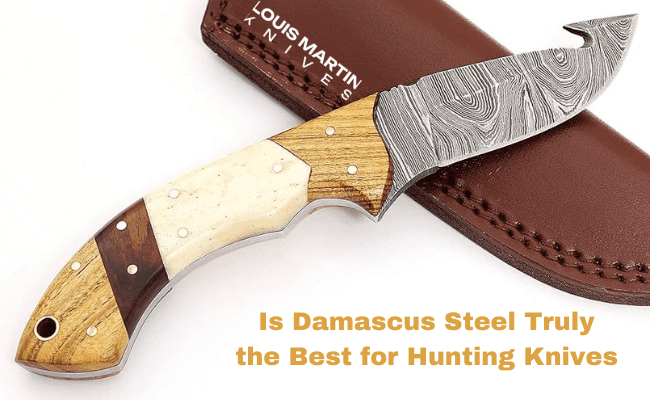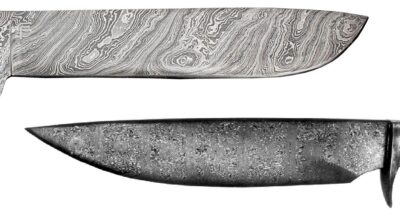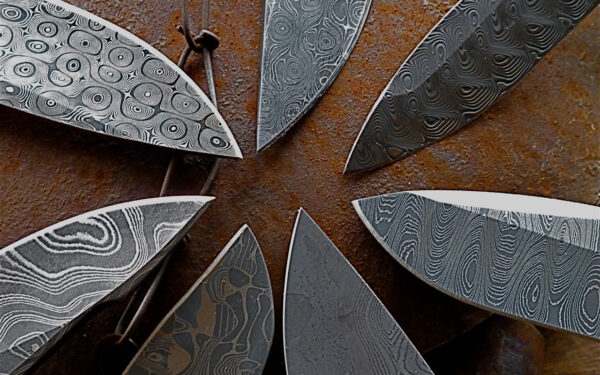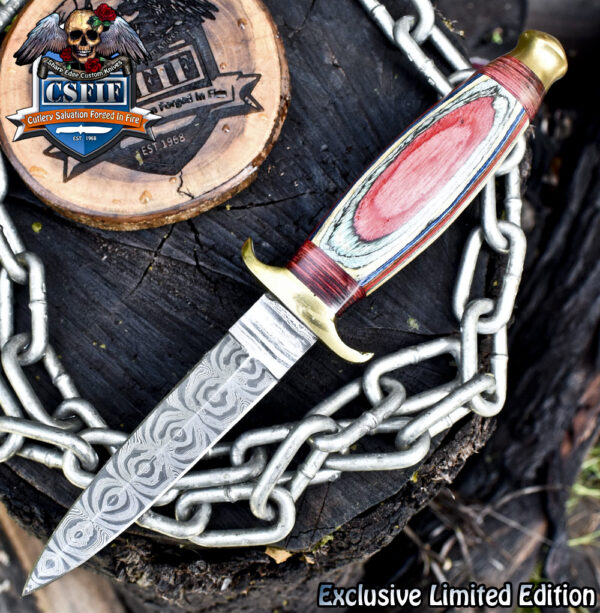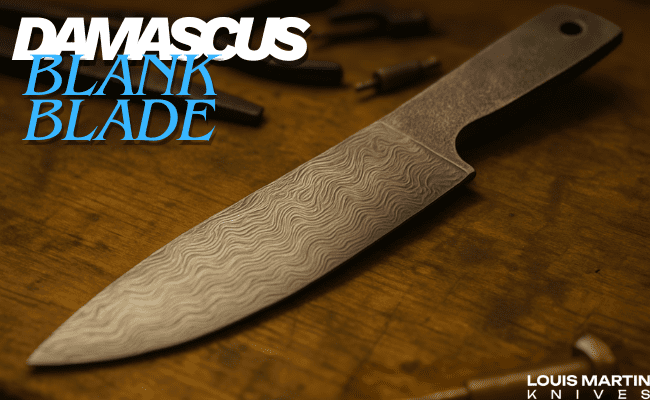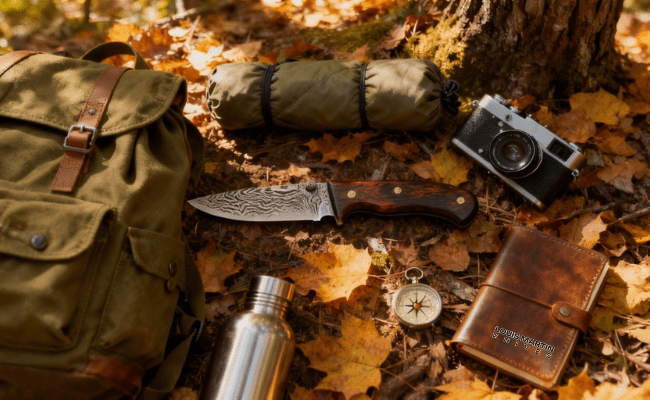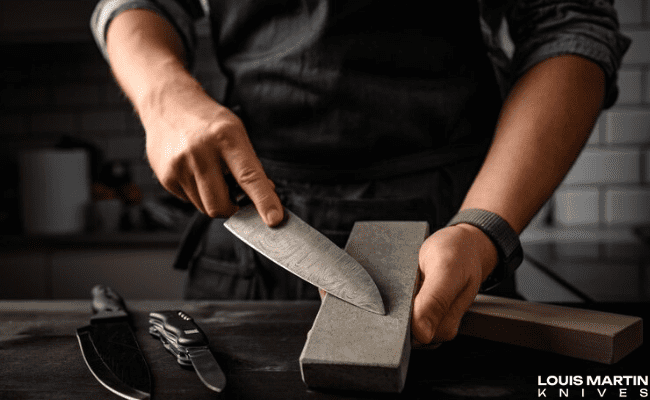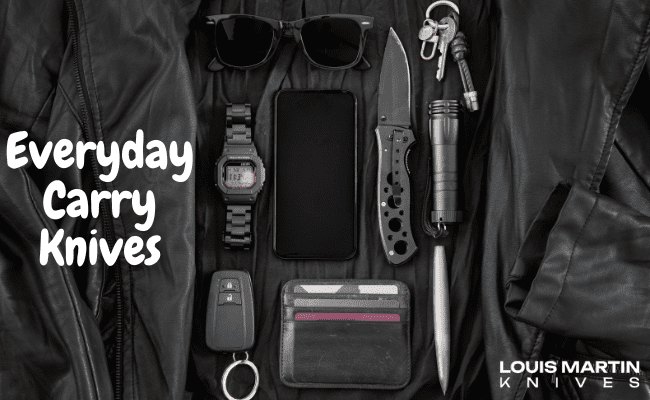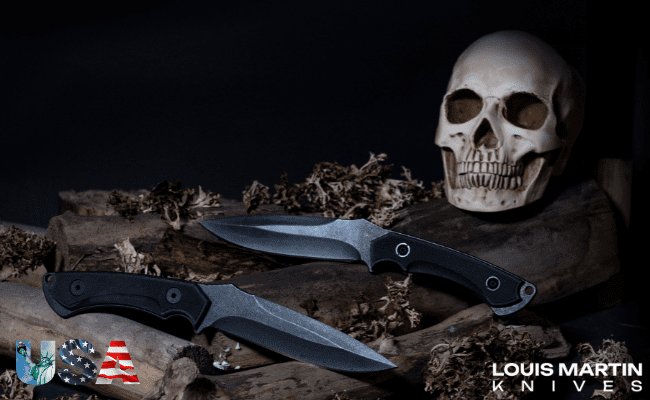Definition of Damascus Steel
Damascus steel, renowned for its exquisite craftsmanship and legendary strength, is a type of steel characterized by its distinctive wavy patterns. This steel has been cherished for centuries for its remarkable properties and historical significance. Dive into the world of Custom knives and learn all the things you need to know about Is Damascus Steel Truly the Best for Hunting Knives
Significance of Damascus Steel in Crafting Hunting Knives
In the realm of hunting, where reliability and precision are paramount, the choice of knife material can significantly impact performance. Damascus Knives reputation for durability and sharpness has made it a favored option among hunters and knife enthusiasts alike.
Purpose of the Discussion:
This discussion aims to delve into the attributes of Damascus knives, comparing them with other popular knife materials, and ultimately determining whether they truly stand out as the best choice for hunting knives.
Historical Background of Damascus Steel
Origins and Early Development
The origins of the Damascus knives trace back to ancient times, with its techniques shrouded in mystery. Historically, it was crafted in the Middle East, particularly in Damascus, hence its name. The secret methods of forging and folding iron and steel alloys resulted in blades of exceptional strength and sharpness.
Techniques and Characteristics
The hallmark of Damascus Knives lies in its distinctive patterns, achieved through a process of layering and forging different metals. This method not only enhances its aesthetic appeal but also contributes to its strength and resilience.
Cultural and Historical Significance
Throughout history, Damascus steel blades were revered for their superior quality, often commanding high prices and serving as symbols of prestige and power. They were prized possessions of kings and warriors, wielded in battles, and revered for their legendary sharpness.
Properties of Damascus Steel Relevant to Hunting Knives
Strength and Durability
One of the most notable attributes of Best Damascus steel hunting knives is their exceptional strength, owing to the layering and folding process during forging. This makes it highly resistant to chipping, bending, or breaking, even under rigorous hunting conditions.
Sharpness and Edge Retention
Damascus Hunting Knives are renowned for their razor-sharp edges, capable of maintaining their keenness even after repeated use. This sharpness is crucial for hunting tasks such as skinning, dressing, and butchering game animals.
Resistance to Corrosion
Despite its high carbon content, Damascus steel exhibits remarkable corrosion resistance, thanks to the presence of various alloying elements. This property ensures that the blade remains unaffected by exposure to moisture and other environmental factors commonly encountered during hunting expeditions.
Aesthetics and Unique Patterns
Beyond its functional attributes, Damascus Hunting knives’ mesmerizing patterns add a touch of elegance to hunting knives, making them not just tools but also works of art. The intricate swirls and waves on the blade surface are a testament to the skill of the bladesmith and contribute to the allure of owning a Damascus steel knife.
Comparison with Other Knife Materials
Stainless Steel
While stainless steel offers excellent corrosion resistance, it often falls short in terms of edge retention and overall durability compared to Damascus steel.
Carbon Steel
Carbon steel blades, known for their hardness and ease of sharpening, may lack the aesthetic appeal and unique patterns of Damascus steel. They are also more prone to corrosion without proper maintenance.
Titanium
Titanium knives are lightweight and highly corrosion-resistant, but they may not offer the same sharpness and edge retention level as Damascus steel.
Ceramic
Ceramic blades are exceptionally sharp and resistant to corrosion, but they are more brittle and prone to chipping or breaking, especially under heavy-duty use.
Practical Considerations in Hunting Knife Selection
User Preferences and Intended Use
The choice between Damascus Hunting knives and other materials ultimately depends on the hunter’s preferences and the specific tasks they expect the knife to perform.
Maintenance and Care Requirements
Proper maintenance, including regular cleaning and oiling, is essential for preserving the integrity of Damascus steel knives and preventing corrosion.
Cost and Accessibility
Damascus Hunting knives are more expensive due to the labor-intensive forging process and the craftsmanship involved. However, they are often viewed as investments that can last a lifetime with proper care.
Top Noche Damascus Hunting knife
Case Studies and Testimonials
Reviews and Feedback from Hunters and Knife Enthusiasts
Numerous testimonials attest to the superior performance and durability of Damascus Hunting knives in hunting scenarios, highlighting their reliability and sharpness.
Performance in Real-Life Hunting Situations
Hunters recount instances where Damascus hunting knives have proven invaluable, whether skinning game, field dressing, or performing intricate tasks with precision and ease.
Conclusion
After a thorough evaluation of its properties and performance, it is evident that Damascus Steel holds a unique position in hunting knives, combining exceptional strength, sharpness, and aesthetic appeal.
FAQs
What is Damascus steel?
Damascus steel is a type of steel characterized by its distinctive wavy patterns, achieved through a process of layering and forging different metals. It has been prized for centuries for its exceptional strength, sharpness, and aesthetic appeal.
Are Damascus steel Hunting knives suitable for hunting?
Yes, Damascus steel knives are highly suitable for hunting. They offer exceptional strength, sharpness, and edge retention, making them ideal for tasks such as skinning, dressing, and butchering game animals.
How does Damascus steel compare to other knife materials?
Damascus steel is renowned for its superior performance compared to many other knife materials. It offers excellent strength, sharpness, and resistance to corrosion, often outperforming stainless steel, carbon steel, titanium, and ceramic in various aspects.
